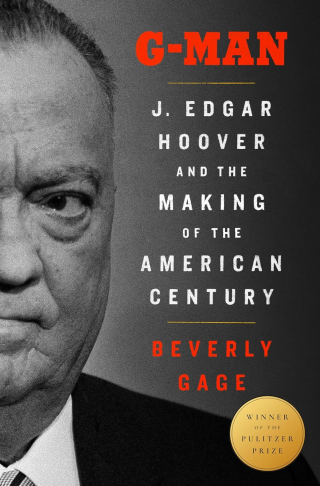It was a sign of how deep the rot went that even someone like Gage gave in to the spirit of the times. In 2022, she published G-Man, a biography of J. Edgar Hoover which is deeply researched, engagingly written, often informative, intermittently critical—but ultimately, an expression of newfound liberal sympathy for Hoover and the FBI. Gage was fairly self-conscious and forthcoming about this. In a New York Times op-ed, she described how “liberal-minded friends often came to me with a confession. They were, they whispered, cheering for the F.B.I.” These liberals now saw “the bureau as the last best hope of the Republic,” rather than “a bastion of political repression.” Gage made clear that she felt this way too:
[The FBI’s] history of professional federal service, of loyalty to the facts and the law, is still worth championing, especially in an era when suspicion of government, rather than faith in its possibilities, so often dominates our discourse. Whatever else we may think of Hoover’s legacy, that tradition is the best part of the institution he built.
Bafflingly, Gage did not confine her praise to the FBI as an institution. She made a point of saying that Hoover himself “promoted a vision of F.B.I. integrity and professionalism that still has resonance.” She was honest enough, or retained enough vestigial leftist antibodies, to add that “Hoover failed to live up to those principles.” But in the book, she puts the best possible face on many of his most flagrant crimes, often making a stronger case for the defense than the evidence will bear.
I have been working intermittently on a critique of Gage’s book, which (unsurprisingly given Gage’s status, and the absurd culture of deference which now dominates the history profession) has not received anything like the criticism it deserves. I hope to get that into presentable form at some point. But in the meantime, Gage has published a piece in the New Yorker which exemplifies her bizarre and misleading approach, and allows me the opportunity for a shorter response.
Gage’s New Yorker piece expresses the opinion that Kash Patel, who Trump wants to lead the FBI, is bad and dangerous. That much I agree with. But the headline is “How Would Kash Patel Compare to J. Edgar Hoover?” Though no one has forced her into such a choice, Gage feels compelled to say that Patel is worse than Hoover. To be sure, Gage admits, Hoover was not the best. Like Trump and Patel, he displayed a “toxic blend of megalomania and political ruthlessness.” But, in the end, Gage feels compelled to inform New Yorker readers that Patel and Trump are, of course, worse than J. Edgar Hoover. The difference? Writes Gage:
Hoover was never partisan in the ways that Trump and Patel are. He did not much care who won elections, as long as the winner promised to support the F.B.I.
